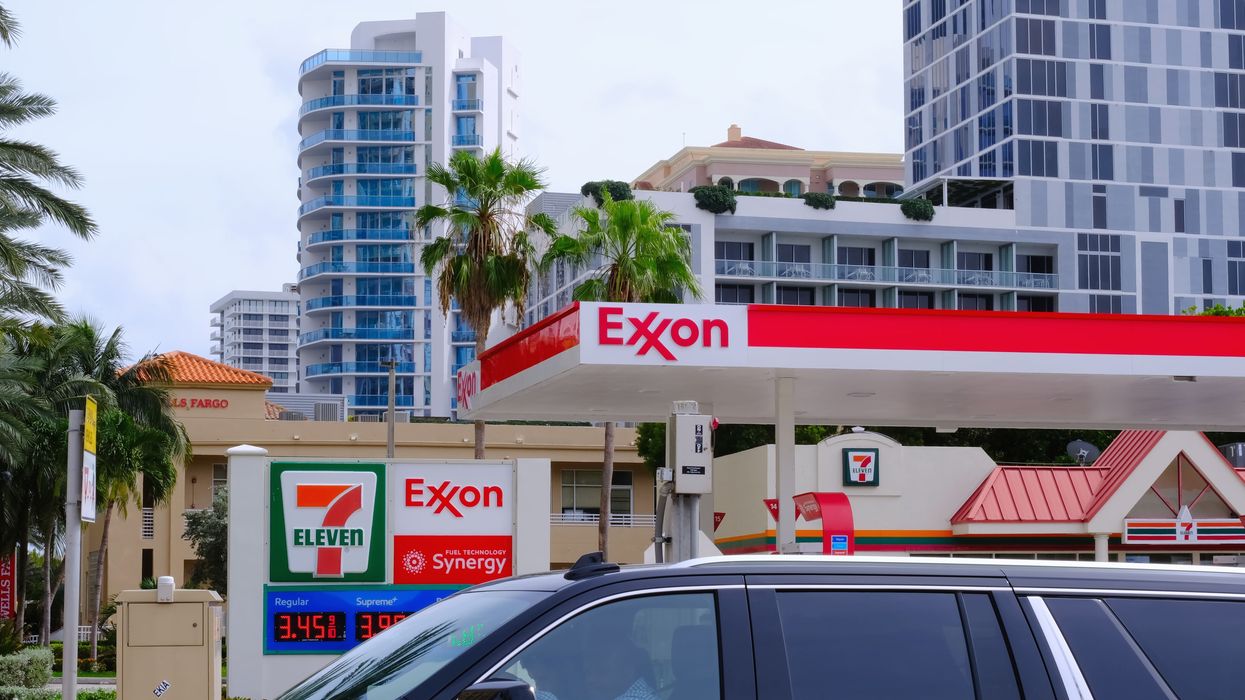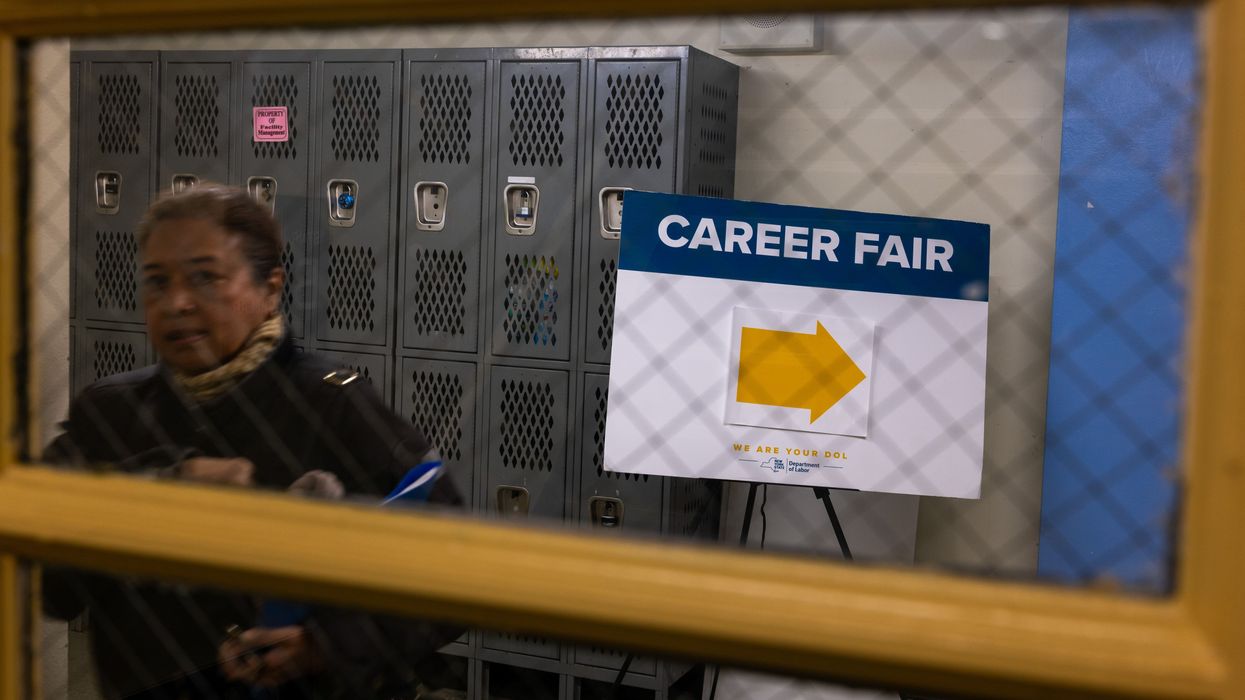August, 25 2011, 03:16pm EDT

For Immediate Release
Contact:
Marianne Engelman Lado, Earthjustice, (212) 791-1881 x 8228
Cyn Sarthou, Gulf Restoration Network, (504) 525-1528, x202
Manley Fuller, Florida Wildlife Federation, (850) 656-7113
Nick Thorp, Toxipedia Consulting Services (508)404-7063
Dr. Michael Robichaux, (985) 537-7546
Report Released Analyzing Toxicity of Dispersants Used In Gulf Oil Disaster
EPA Urged to Disclose Ingredients, Test Chemicals and Set Standards
NEW YORK
A report released this week states that five of the 57 ingredients in dispersants eligible for use in response to oil spills are linked to cancer. Dispersants are used to clean up oil spills and contain chemicals that break up oil into smaller droplets and move the oil from the surface of the water into the water column. The report presents the findings of research on the potential effects of the oil dispersants and their chemical ingredients on humans and the environment and calls for additional toxicity testing of these chemicals and the dispersants and more careful selection of dispersants in response to oil spills.
The report "The Chaos of Clean-Up: Analysis of Potential Health and Environmental Impacts of Chemicals in Dispersant Products" highlights the fact that some dispersants are safer than others.
The report from Earthjustice, an environmental law firm, along with Toxipedia Consulting Services, is based on material released by the Environmental Protection Agency (EPA) in response to a Freedom of Information Act request made by Earthjustice on behalf of the Gulf Restoration Network and the Florida Wildlife Federation.
Earthjustice went to court to obtain the ingredients of dispersants eligible for use; health and safety studies on the chemicals in dispersants; the application materials and toxicity testing results submitted to EPA by dispersant manufacturers seeking to obtain eligibility status for their dispersant; and correspondence between EPA and BP about the selection of an appropriate dispersant during the Deepwater Horizon disaster. All of these materials are now available at Toxipedia.org.
"The testing can't be done in the moment of the disaster," said Marianne Engelman Lado. "It has to be done ahead of time to avoid the chaos we witnessed during the disaster response to the Deepwater Horizon disaster."
"The goal here is, when dispersant use is required, we use the least toxic dispersants that are appropriate to that specific spill condition," said Manley Fuller of the Florida Wilderness Federation. "To do that, we need to know the ingredients and they need to be tested in field conditions."
Gulf residents continue to suffer health effects related to the disaster clean-up. "The illnesses we observed were quite unique and different from anything that I had ever witnessed before," said Dr. Michael Robichaux, a physician in Raceland, Louisiana. "Although there were scores of complaints early on, the main problems at this time are a loss of memory, seizure type problems, severe abdominal pain, fatigue, irritability and other neurological and endocrine manifestations."
"Despite ongoing concerns from the public about the toxicity of listed dispersants and their impacts upon the environment, the EPA continues to protect the dispersant manufacturers, who want to keep the ingredients of their products secret," said Cyn Sarthou, Executive Director of the Gulf Restoration Network. "As a result, choices between dispersants are not being made publicly and without full knowledge of their impacts."
Toxipedia.org has made information on the chemicals accessible to the public for the first time through its website at www.toxipedia.org/display/toxipedia/Oil+Dispersant.
Earthjustice is a non-profit public interest law firm dedicated to protecting the magnificent places, natural resources, and wildlife of this earth, and to defending the right of all people to a healthy environment. We bring about far-reaching change by enforcing and strengthening environmental laws on behalf of hundreds of organizations, coalitions and communities.
800-584-6460LATEST NEWS
How the Past 25 Years of Big Oil's Lie-Filled Ads Have Delivered 'Climate Catastrophe'
"Big Oil's climate deception has evolved from lying about the problem to lying about solutions," said the head of the Center for Climate Integrity.
Dec 11, 2025
A group that supports communities' efforts to hold Big Oil accountable for decades of deception related to the climate emergency released a report on Thursday after reviewing more than 300 advertisements from four fossil fuel giants since 2000.
Over the past decade, people across academia, civil society, Congress, and journalism have examined the evolving lies of oil and gas giants, which have long been accused of using Big Tobacco's playbook.
"Using evidence from congressional investigations, advertising, and public relations documents, independent journalism, and watchdog reports," the new analysis states, "Big Oil's Deceptive Climate Ads explains how the pervasive and misleading messaging in BP, Chevron, ExxonMobil, and Shell’s advertisements has not only misrepresented the companies' business practices, but, over the span of two and a half decades, effectively cultivated a larger, deceptive narrative that oil and gas companies are leaders in the fight against climate change, when in fact they are actively fueling climate catastrophe around the globe."
The Center for Climate Integrity (CCI) report notes that "while oil and gas companies and their trade associations publicly denied the risks and realities of climate change for decades, growing public understanding of climate science around the turn of the 21st century eventually meant that outright denial was no longer sufficient to protect their bottom line."
NEW: For 25 years, four oil giants sold false climate promises through deceptive ad campaigns.Our report examined 300+ ads from BP, Chevron, Exxon, and Shell from 2000-2025. Together they push a false narrative that Big Oil is leading climate solutions. In reality, they're fueling catastrophe.
[image or embed]
— Center for Climate Integrity (@climateintegrity.org) December 11, 2025 at 8:54 AM
"During this period, major oil and gas companies began to reposition themselves publicly as active partners in the fight against climate change, even while they continued to increase fossil fuel production, invest minimally in clean energy, oppose energy efficiency initiatives, and promote technically or economically infeasible solutions," the document details.
"To convey this misleading image to the public," the publication continues, "Big Oil companies carried out extensive advertising campaigns, inundating the public with messaging that creates an overall deceptive portrait of their true role in the climate crisis."
CCI sorted the ads across seven categories of deception: emissions reductions, renewables investments, individual action, natural gas, carbon capture and storage, hydrogen, and algae biofuels. The group found that "these skillfully crafted advertisements often include partially truthful statements but omit relevant contextual information to create an inaccurate or incomplete representation of the initiative, product, or technology they promote."
"For instance, advertisements that portray natural gas as beneficial for the climate because it 'lowers emissions' are misleading by omission, because although gas produces less CO2 and other pollutants than coal when burned, it still emits significant quantities of greenhouse gases, including CO2 and methane, that pose a serious threat to the climate," the publication points out. "This tactic, known as paltering, has been at the core of Big Oil companies' climate advertisements for the past 25 years."

The report also acknowledges the public response: "Market research shows BP's 'Beyond Petroleum' campaign increased brand favorability among US and UK audiences, leading viewers to associate the oil giant with efforts to reduce carbon emissions at a time when it was the largest producer of fossil fuels in the UK and North America. Chevron's 'Real Issues' campaign, which promoted its energy conservation initiatives and renewables investments, improved the company's reputation among ad-exposed audiences."
The publication comes as the climate emergency continues to worsen, with deadly impacts, and world leaders fail to take adequate steps toward "a just, equitable, fossil-free future." Meanwhile, communities continue to call for not only action to limit future global warming but also consequences for the big polluters that created the global crisis.
The report similarly concludes that "oil and gas companies—including BP, Chevron, ExxonMobil, and Shell—must be held accountable for the damages their deception has caused. As climate accountability lawsuits filed by communities across the US make their way through the courts, ongoing advertising deception by the four oil majors' in this report demands further scrutiny and investigation."
CCI president Richard Wiles echoed that demand in a Thursday statement: "Big Oil's climate deception has evolved from lying about the problem to lying about solutions. For two-and-a-half decades now, these companies have sold the public a false and misleading image of their industry as working to solve the climate crisis, all while doubling down on fossil fuels and making the problem worse."
According to Wiles, "Any business that floods consumers with such brazenly deceptive advertising must be held accountable."
Keep ReadingShow Less
'Why Is This Hard?' Schumer Won't Say He Opposes Regime Change in Venezuela
"Twenty-five years ago, Chuck Schumer and Susan Collins both voted to send me and friends to kill and die in Iraq," said US Senate candidate Graham Platner. "Apparently neither of them have learned a thing."
Dec 11, 2025
US Rep. Ro Khanna suggested on Thursday that the top Democrat in the Senate had offered the latest evidence that the party needs "a new generation to lead... with moral clarity and conviction" after Sen. Chuck Schumer refused to denounce the Trump administration's threats of regime change in Venezuela.
"Why is this hard?" asked Khanna (D-Calif.) after Schumer (D-NY), the Senate minority leader, told CNN's Jake Tapper Wednesday evening that "everyone would like" it if Venezuelan President Nicolás Maduro "would flee on his own" instead of stating that the US should not try to force out the South American leader.
When asked point-blank if he disagrees with President Donald Trump's "ultimate goal of regime change in Venezuela," Schumer turned his focus to the lack of clarity in the White House's strategy.
"The bottom line is President Trump throws out so many different things in so many different ways. You don't even know what the heck he's talking about. You know, obviously, if Maduro would just flee on his own, everyone would like that. But we don't know what the heck he's up to when he talks about that," said Schumer. "You cannot say I endorse this, I endorse that when Trump is all over the lot, not very specific and very worrisome at how far he might escalate."
Chuck Schumer won't say if he opposes regime change in Venezuela.
JAKE TAPPER: Do you disagree with President Trump's ultimate goal of regime change in Venezuela?
CHUCK SCHUMER: Look, the bottom line is President Trump throws out so many different things in so many different… pic.twitter.com/kwjWMsBgM8
— Ken Klippenstein (NSPM-7 Compliant) (@kenklippenstein) December 10, 2025
Schumer's response, Khanna suggested, should have been: "Yes, Democrats oppose regime change war in Venezuela. Instead of wasting trillions on endless wars, we must invest in jobs, healthcare, and housing for Americans."
The CNN interview took place hours after the US military seized an oil tanker off the coast of Venezuela in what one think tank called an "illegal" escalation. In recent weeks Trump has claimed he's ordered the airspace above and around Venezuela closed—an action experts said he had no legal authority to take—authorized covert CIA action in the country, and this week said the US plans to "hit ‘em on land very soon," threatening strikes against Venezuela as well as Mexico and Colombia.
The White House has aggressively pushed a narrative about the need to stop the trafficking of fentanyl from Venezuela—despite findings by the Drug Enforcement Administration and the United Nations that the country plays virtually no role in the flow of the drug into the US. At least 87 people have been killed in US military strikes on boats in the Caribbean and eastern Pacific since September—bombings that Defense Secretary Pete Hegseth and Trump have claimed without evidence have targeted "narco-terrorists," but which Latin American officials, the family of one victim, and legal experts have denounced as extrajudicial killings and homicide.
Trump has previously signaled a desire to take control of Venezuela's vast oil reserves.
On November 21, Trump reportedly spoke to Maduro in a phone call and offered him safe passage out of Venezuela if he abdicated power, in the most explicit confirmation that the administration is seeking regime change. A CBS/YouGov poll released two days later found that 70% of Americans oppose any military action in Venezuela.
Labor attorney Benjamin Dictor and Democratic US Senate candidate Graham Platner of Maine were among those who joined Khanna in condemning Schumer's refusal to unequivocally reject the goal of forcing Maduro out through military action.
"Chuck Schumer is so spineless he can’t even affirmatively oppose illegal, unauthorized regime change by military force," said Dictor.
Schumer has called for the passage of a war powers resolution to block the deployment of US forces in Venezuela. As Trump has continued the boat bombings and built up military presence in the Caribbean, two war powers resolutions aimed at stopping the US from striking boats and targets inside Venezuela have failed to pass.
But his refusal to speak out comes two months after journalist Aída Chávez reported that a "senior Democratic staffer" was "discouraging Democrats from coming out against regime change in Venezuela... arguing that opposing Trump and [Secretary of State Marco] Rubio's regime change amounts to supporting Maduro."
After Schumer's interview, Matt Duss of the Center for International Policy joined in calling for "regime change in the Senate Democratic Caucus."
Keep ReadingShow Less
New Unemployment Claims Jump to Highest Level in Months as Trump Economy Teeters
"While President Trump calls affordability a ‘hoax,’ countless families are being forced into impossible tradeoffs every day."
Dec 11, 2025
Federal data released Thursday shows that the number of Americans filing for unemployment benefits surged last week, another indication of growing instability in President Donald Trump's economy as corporations lay off workers en masse and prices continue to rise.
For the week ending December 6, new unemployment claims jumped to 236,000—an increase of 44,000 from the previous week, according to figures from the US Labor Department.
Andrew Stettner, an unemployment insurance expert at The Century Foundation (TCF) noted that new unemployment claims are now at their highest level since early September.
"These totals don’t include an additional 12,732 former federal workers who are also now relying on unemployment benefits, as the number of federal workers on UI has stayed at levels not seen since the pandemic, even after the government shutdown has ended," Stettner said.
"This disappointing news comes on the heels of other troubling labor market data," he continued, pointing to private-sector payroll figures showing the US economy lost 32,000 jobs in November. "With hiring still so weak, it is no surprise that the percentage of workers feeling confident enough to quit their job dropped to its lowest level since the beginning of the pandemic in April 2020. In fact, our polling shows that 27% of Americans said they took on a 'second job, side hustle, or gig work' in the past year to help make ends meet."
The updated unemployment numbers come as Trump is on an economic messaging tour during which he has dismissed the notion that his policies have worsened the country's affordability crisis, calling such claims a Democratic "hoax" even as polling shows Americans—including a significant percentage of his own voters—increasingly blame the president for rising costs groceries and other necessities.
"We inherited the highest prices ever, and we’re bringing them down,” Trump said, falsely, during a stop in Pennsylvania earlier this week.
"We’re crushing it, and you’re getting much higher wages,” the president added, another falsehood.
Survey data released Thursday by The Century Foundation shows that Americans are increasingly skipping meals and doctor visits as prices rise.
"Roughly three in 10 voters delayed or skipped medical care in the past year due to cost, while nearly two-thirds switched to cheaper groceries or bought less food altogether," the group noted in a summary of its findings. "About half tapped into their savings to cover everyday expenses."
Julie Margetta Morgan, president of The Century Foundation, said in a statement that "while President Trump calls affordability a ‘hoax,’ countless families are being forced into impossible tradeoffs every day as a result of Trump’s disastrous policies that are jacking up prices."
"Working-class Americans are living in a different, harsher economy under Trump," Morgan added, "and they feel the impacts of financialization—and the added risks and costs that come with it—most severely."
Keep ReadingShow Less
Most Popular


